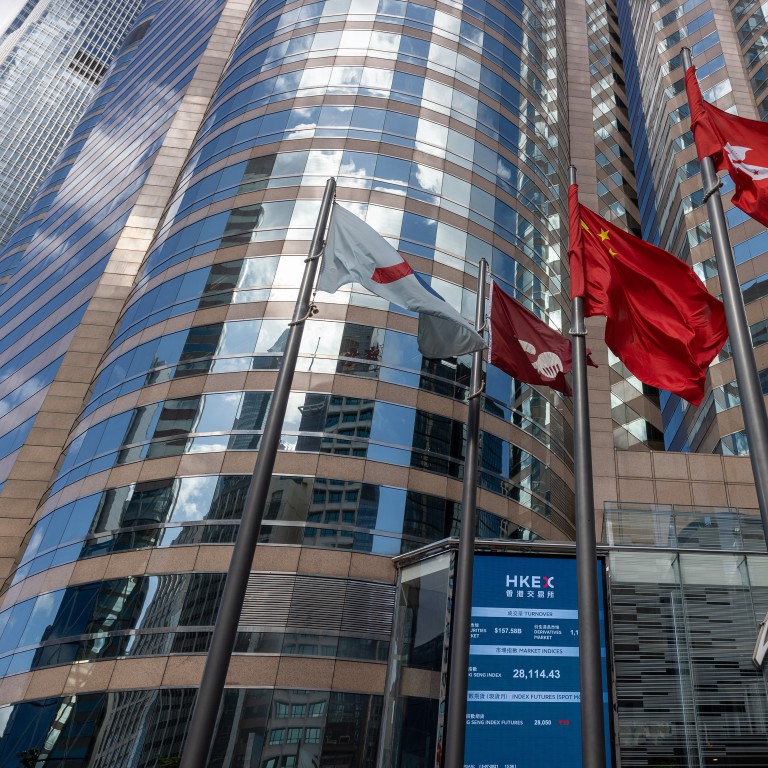
Hong Kong’s planned SPAC rules could give it an edge in attracting Chinese tech, biotech firms
- SPACs have raised more than US$126 billion globally this year
- Planned listing changes in Hong Kong may require fine-tuning, deal makers say
The so-called blank-cheque companies have been one of the hottest fundraising trends globally over the past 18 months, raising US$126.4 billion this year and accounting for more than half of the capital raised in IPOs on American bourses, according to SPAC Analytics, a research firm focused on the investment vehicles.

03:34
SPACs: Everything you need to know about the finance world’s new big thing
“For mainland companies, Hong Kong has long been their first choice for listing outside the domestic market as it is an international financial centre that shares the same language and culture with China,” said Louis Lau, a partner in the capital markets advisory group at KPMG China. “When Hong Kong allows SPACs to list here, it is natural that a majority of mainland companies will opt for a listing in Hong Kong, instead of going to the US.”
Under Hong Kong’s proposed rules, blank-cheque companies must raise at least HK$1 billion (US$128 million) to list on its main board and target companies must qualify under its existing listing rules.
By comparison, Singapore set a minimum market cap for SPAC listings of S$150 million (US$112 million). That is lower than the minimum market cap of S$300 million proposed earlier this year and more in line with thresholds for listings on the New York Stock Exchange or Nasdaq.

Only professional investors – those with HK$8 million of assets and investment experience – will be allowed to buy SPAC shares in Hong Kong before a merger is completed, and blank-cheque companies who list in the city have up to 36 months to complete a deal. There is no such restriction on who can buy blank-cheque company shares in the US or Singapore.
“It makes sense to only allow professional investors to trade SPAC shares, as the risks for such type of investment vehicles are not familiar to retail investors,” said Tom Chan Pak-lam, chairman of Institute of Securities Dealers, a brokers’ industry body in Hong Kong.
“SPACs are like a club for tycoons or the ultra-rich to pool their funding for investments; it is not really tailor-made for retail investors in Hong Kong,” Chan said.
Some experts, however, said that Hong Kong’s restrictive proposals would make it harder to compete with rivals. The areas of contention include Hong Kong’s planned treatment of redemptions: investors can only redeem their investments ahead of a merger if they vote against a proposed transaction; the requirement at least one SPAC promoter be licensed in Hong Kong and the need for an IPO sponsor ahead of a de-SPAC transaction, according to deal makers.
“There are a lot of people looking for a viable SPAC regime in Asia,” said Marcia Ellis, global chair of the private equity group at law firm Morrison & Foerster. “Right now, none of the other SPAC regimes in Asia have yet really been successful. If they were to tweak a few features and depend more on the fact that retail has become excluded from investing in SPACs, it could become very successful.”

“The introduction of SPAC regime in Asia will definitely add vibrancy to Asia’s capital markets by adding on an alternative fundraising mechanism that companies can tap,” said David Gerald, the founder, president and CEO of the Securities Investors Association (Singapore).
Singapore and Hong Kong could be attractive homes for Chinese companies seeking to list via blank-cheque companies as Beijing is placing greater scrutiny on listings overseas, primarily in the US, and American regulators tighten their listing rules for Chinese stocks, Gerald said.
However, the question remains for bourse operators whether interest in SPACs will remain high, particularly as issuance has slowed in recent months.
Goldman Sachs said this month that returns for investors in SPACs “have been weak, especially following deal closure”. Of active SPACs, 93 per cent are trading below their par values, with the median SPAC seeking a target offering a return of just 2.7 per cent, according to the investment bank.
“Regulatory and legal concerns continue to cloud the issuance outlook,” Goldman’s US chief equity strategist David Kostin said in a September 15 research report.


